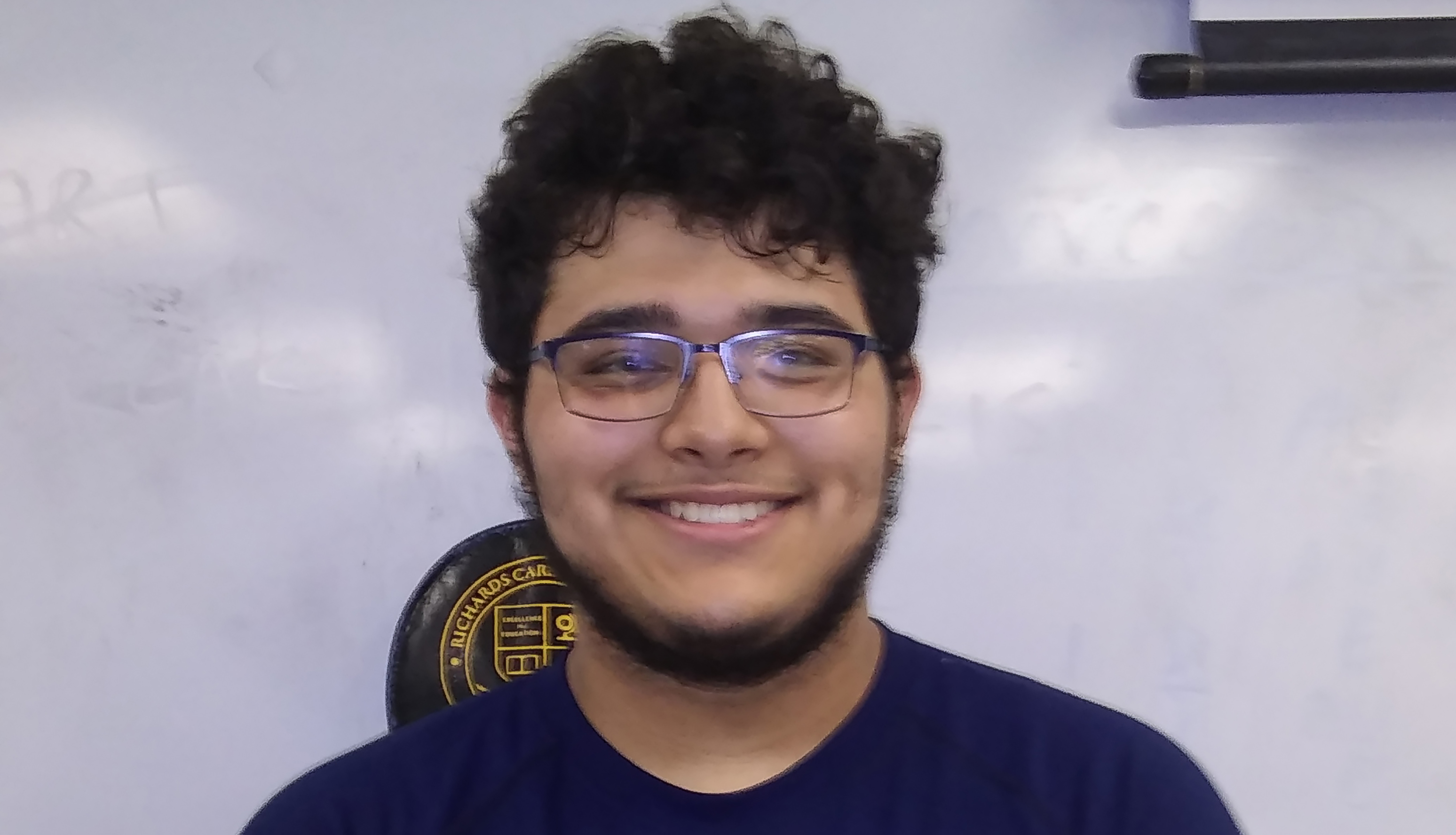
Richards Career Academy senior José Guzmán knows how to hustle. He learned his confident, easy way with people by selling candy on Pulaski Avenue, a bustling thoroughfare on Chicago’s Southwest Side. While making sales, he would chat up his customers, hoping to land odd jobs.
Guzmán struck it lucky when he met a small-time general contractor. [pullquote position="right"]“He taught me a little bit of different trades: flooring, electrical, plumbing and construction,”[/pullquote] he says.
Guzmán liked electricity, even though he learned about safety the hard way. “I did get electrocuted one time. I was on a ladder and I forgot to turn off the lights and grabbed the wrong wire,” he says. “It was just a wake-up call to pay attention.”
Last fall, Guzmán began searching for his next step after high school in earnest, thanks to Chicago Public Schools’ new requirement that every senior develop a postsecondary plan. “I was open to [seeing] what I was able to do,” he says. Initially, he was interested in mechanical engineering or construction. With the help of his senior seminar teacher, Tom Conley, he applied to every campus of Chicago’s community college system, plus a few four-year schools: Chicago State, Northern Illinois University and Robert Morris College.
[pullquote]Although Guzmán was accepted to a number of colleges for two- and four-year degree programs, he decided he’d rather get into the workforce faster.[/pullquote] So he’s preparing to take the test to enter Dawson Technical Institute’s Overhead Electrical Line Workers program, a five- to six-month advanced certificate program that prepares students for jobs with a public utility, cable company or private electrical contractor. Upon completion of the program, graduates are ready to work as apprentices in the industry. Since 2007, the program has partnered with ComEd, Chicago’s electrical provider, and more than half of program graduates work there. Because Dawson Tech is part of Chicago’s community college system, the program will cost him a lot less than going to a private trade school.
“I enjoy working with wires,” Guzmán says. More importantly, he adds, “I like the pay. I’ve done it, so I know how it works.” He’s hopeful that doing this program will give him the connections he needs to get a steady, good-paying job.
Maureen Kelleher is Editorial Director at Future Ed. She was formerly Editorial Partner at Ed Post and is a veteran education reporter, a former high school English teacher, and also the proud mom of an elementary student in Chicago Public Schools. Her work has been published across the education world, from Education Week to the Center for American Progress. Between 1998 and 2006 she was an associate editor at Catalyst Chicago, the go-to magazine covering Chicago’s public schools. There, her reporting won awards from the Annie E. Casey Foundation, the International Reading Association and the Society for Professional Journalists.
If you have a child with disabilities, you’re not alone: According to the latest data, over 7 million American schoolchildren — 14% of all students ages 3-21 — are classified as eligible for special...
The fight for educational equity has never been just about schools. The real North Star for this work is providing opportunities for each child to thrive into adulthood. This means that our advocacy...
The story you tell yourself about your own math ability tends to become true. This isn’t some Oprah aphorism about attracting what you want from the universe. Well, I guess it kind of is, but...
Your donations support the voices who challenge decision makers to provide the learning opportunities all children need to thrive.
Ed Post is the flagship website platform of brightbeam, a 501(c3) network of education activists and influencers demanding a better education and a brighter future for every child.
© 2020–2024 brightbeam. All rights reserved.